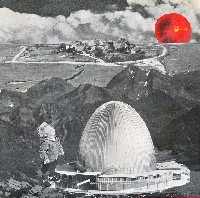CC: Bit of Orange reboot - Color Series 2.0
Launch gallery slideshow

| Swap Coordinator: | Angie (contact) |
| Swap categories: | Challenges Art Handmade |
| Number of people in swap: | 14 |
| Location: | International |
| Type: | Type 3: Package or craft |
| Last day to signup/drop: | July 15, 2016 |
| Date items must be sent by: | August 15, 2016 |
| Number of swap partners: | 1 |
| Description: | |
|
Many of us enjoyed Fi's color series that began back in autumn of 2014. Has it been that long? Yep. With Fi's kind permission, I'm going to give the color series a reboot. This will serve as a refresher for some of us and an opportunity for others to get on board. Once we all get back up to speed, I hope Fi will be able to join us and lead us in more creatively inspired swaps in this color series. Text mostly lifted from Fi's original swap ... Orange is the last of the six major colors to get an identity of its own. It wasn't until the sixteenth century, when trading routes had been established that brought oranges to France and then to Great Britain, that people stopped saying "yellow-red" in English and started naming the color after the fruit. Oranges were probably first cultivated in China, then became "narang" in Persian, "naranj" in Arabic, "naranga" in Sanskrit, "naranja" in Spanish, and "orange" (oh-rahnzh) in French. Of course, orange has always existed and been plentiful, whether in the form of blooms, fruits, vegetables, animals, or the sky as the sun sets. Through pigments like saffron, it has long colored clothes and canvases. It has been used to symbolize nationhood, religious identity, and athletic affiliations. And yet it doesn't come close to its neighbor, red, in terms of cultural force. This may have to do with the nature of orange as a visible hue: when pale, it's usually called yellow, and when dark, it's usually seen as brown. But there's a narrow band in which orange can show off as its true self, and in that narrow band, it shines. The intention of this series of swaps is to explore the power of color used sparingly, with the greatest part of the collage being colors I am calling "neutrals." By "neutrals" I mean not just white, the infinite greys, and black, but also all the various shades of brown, which include cream and pale tan. This time you will create a collage with mostly neutrals and just a bit of orange. Future swaps will be devoted to "A Bit of Yellow," "A Bit of Green," and so on through the rainbow. The "A Bit of..." series will usually have the signups due by the 25th of the month, but I made it the 27th this month to give people who celebrate Christmas a chance to recover. "A Bit of Orange" is due in the mail by August 15th. So! Your challenge, this month, is to make one collage postcard of any size or shape with mostly neutrals and just a bit of orange as the allowed colors. You may use any shade of orange—pale, rusty, vivid, tangerine, saffron, peach, fiery, and so on—even the color of traffic cones and warning barrels. Special note about your neutrals for this swap: Stay far away from browns that are tinged with orange, or your bit of orange won't "pop." Some vintage papers, and many inks for making fake vintage paper, are quite orange-y. The examples below do show a couple of different collages using vintage paper. The third example is especially noteworthy, because the artist put their bits of orange in the paler portion of the vintage paper—one solution to this problem. This swap is "sender's choice," which is another way of saying, "don't look at your partner's profile." In fact, this whole series is about developing your own imagination as a collage artist, not about pleasing your partner. Think of it as a chance to expand your repertoire! You may, of course, add other media of all ilk to the PC, but collage should be the main medium. Mail it naked unless there are flimsy bits. Mail it by the 15th of January. Mini-FAQ:
Some examples of mostly neutrals with a bit of orange:
I hope the examples will inspire you to try new and different things: have fun! Happy Holidays! Image from Corgi Feet at Flickr | |
- Info:
- Home
- |
- About
- |
- Forum Rules
- |
- Terms of Use
- |
- Press
- |
- Advertising
- |
- Blog
- |
- Graphics & Stuff
- Help:
- New User Info
- |
- FAQ
- |
- Group Info
- |
- Glossary
- |
- Forums
- |
- |
- Contact Admin

